I’ve been grumpy and angry these days. I’m just angry because of all the situations community right now…there are too many people hurting. I didn’t even realize I was angry until a friend reached out and asked me how I was doing. Finally, I realized I wasn’t just tired, but I’m angry too. So he asked me, “Well, who are you angry with?”
I had to confess that I’m angry with God.
I’m angry because I believe God has the power and ability to intervene in all of these situations and I just didn’t see it happening. Then later in the week I talked with people who are planning funerals for their loved ones who died of COVID…and they are angry.
And others who have loved ones who need transplants…and they are angry.
And then the next morning a friend said “You know what keeps me up at night? I’m angry at God.”
The biggest question isn’t why did God cause this to happen, but rather why does God not intervene in tragic situations?
The answer is, “I don’t know.” I don’t know why God intervenes sometimes and not other times.
Because we don’t know we tend to get angry.
Human anger is caused when one’s experience does not meet one’s expectation.
You expect your spouse to have dinner ready when you come home and then when you don’t experience it you get angry.
You expect your wallet to have cash in it and when you experience it there is none in there so you get angry.
You expect there to be gas in your car after someone borrowed it but when you experience it, its empty so you get angry.
Do you get the idea? Anger comes from when expectations do not match up with experience.
But what about our anger with God? Don’t we have some anger issues with God?
Here are four key ways we expect something of God:
All of us think of God as some degree of loving/judging and some degree of engaging, or interactive. You might think God is more loving than I do, I might think God is more involved than you do, so I have this grid:
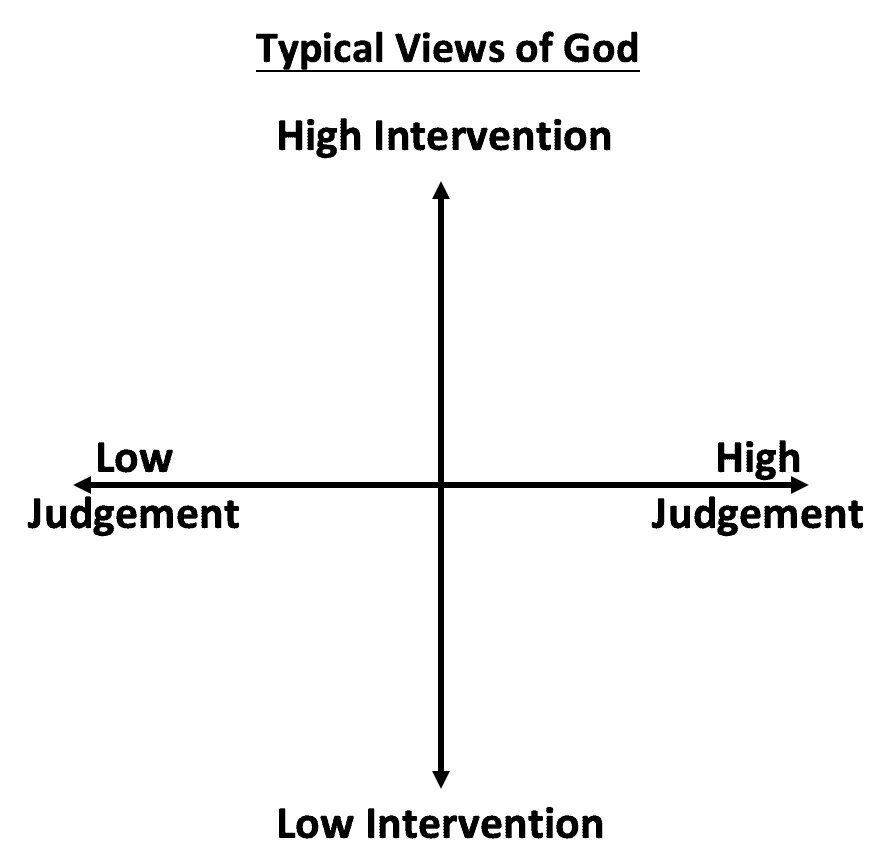
Horizontal– High judgment on the right and low on the left. Do you think God rules with an iron fist or a feather?
Vertical – High intervention at the top and low on the bottom. Do you think God manipulates everything on earth or is God hands off?
According to a study done by Baylor University most Americans that believe in God, view God in one of these ways:
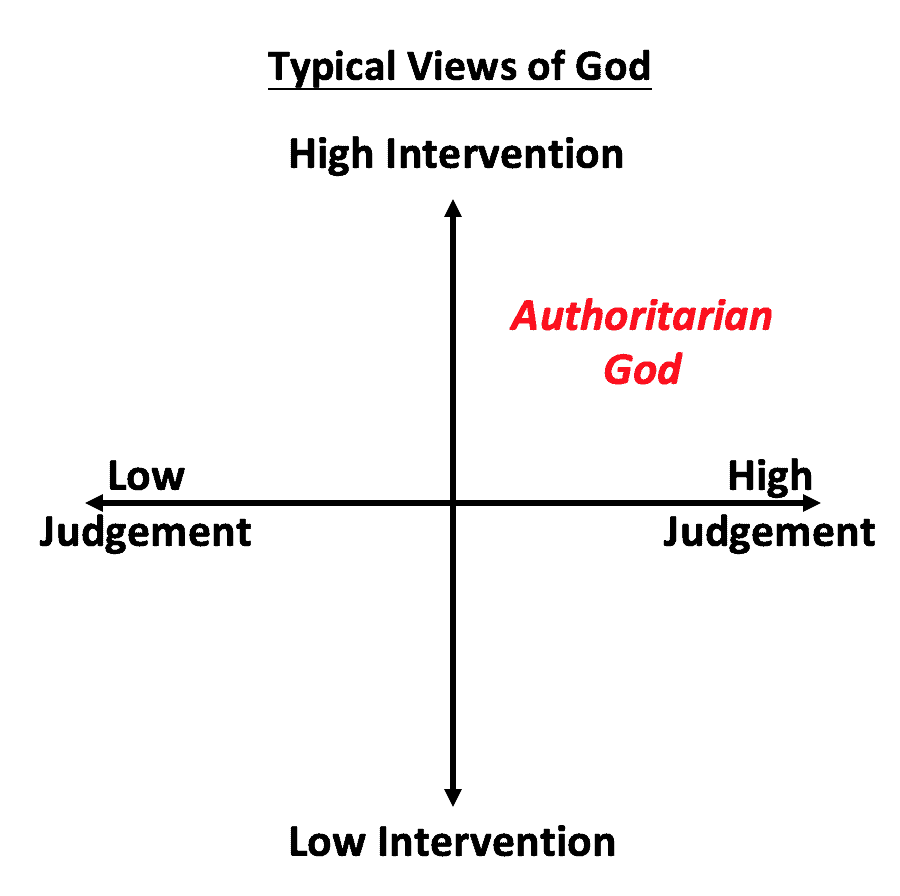
- Authoritarian God: High Intervention, High Judgment – okay this person thinks that God is highly involved in determining outcomes and holds people accountable for their own actions – they tend to get mad when people don’t get what they deserve…especially in regards to punishment and justice…grace is not their strong suit.
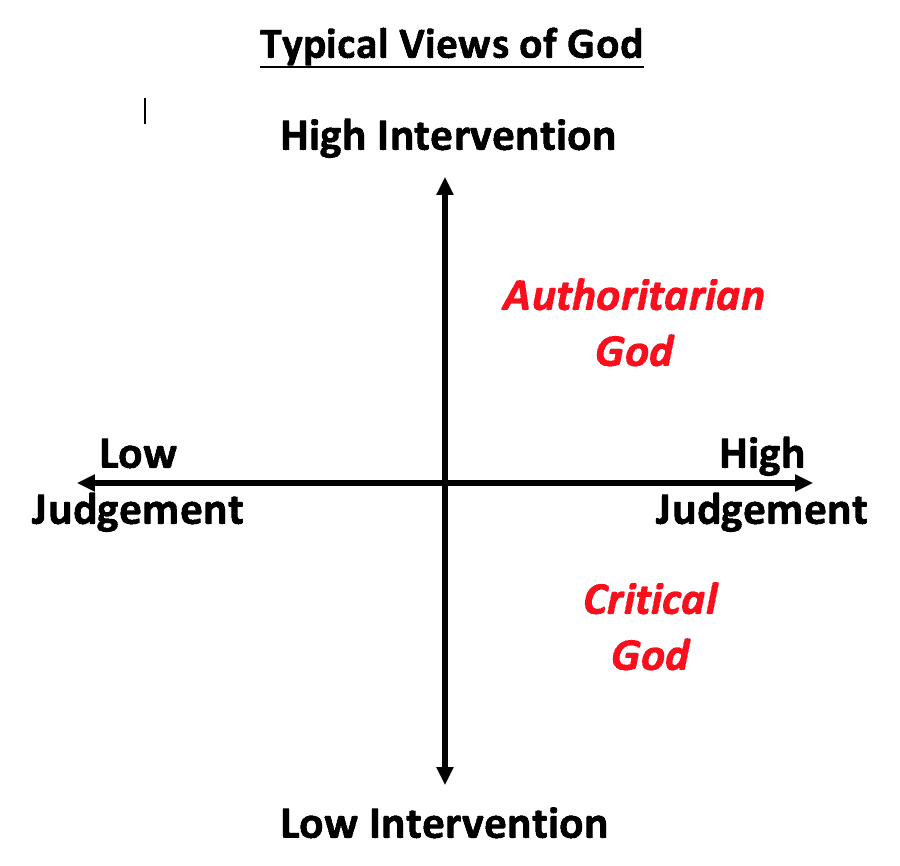
- Critical God: Low Intervention, High Judgment – this person views God as hands off of human interaction and outcomes, who does not better the fortunes of humans and see themselves as the maker of their own problems. The person who has a view of Critical God can be angry because God does not live up to the expectation of being critical of other’s behaviors.
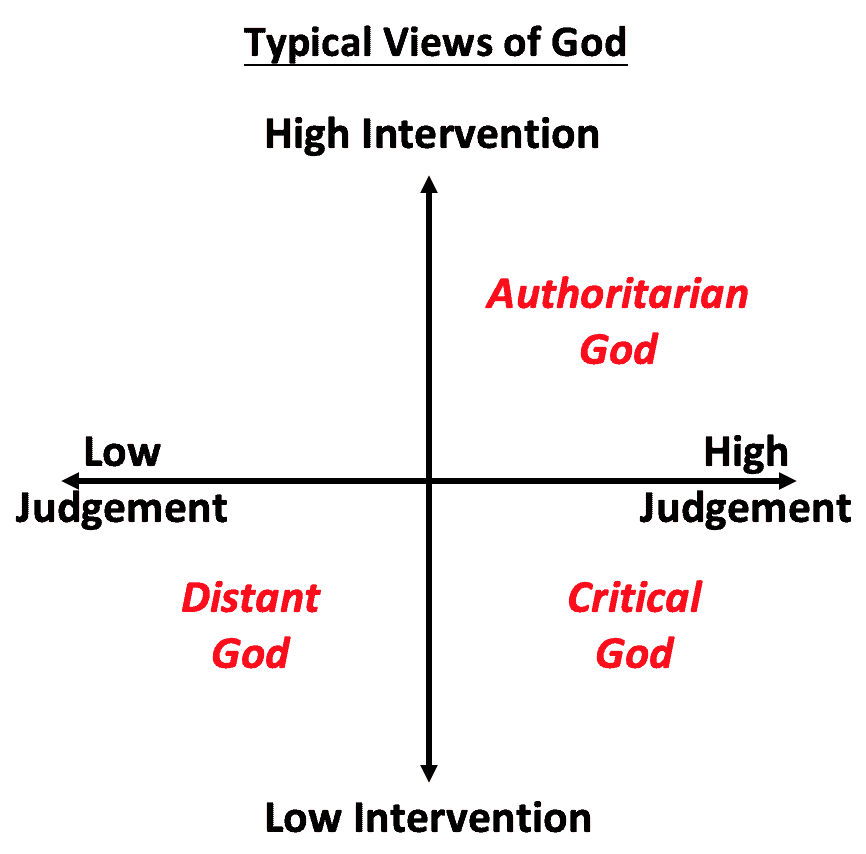
- Distant God: Low Intervention, Low Judgment – this person sees God as uninvolved…they are usually agnostic, they believe in God, but God is unknowable. When tragedy comes there are no answers from God.
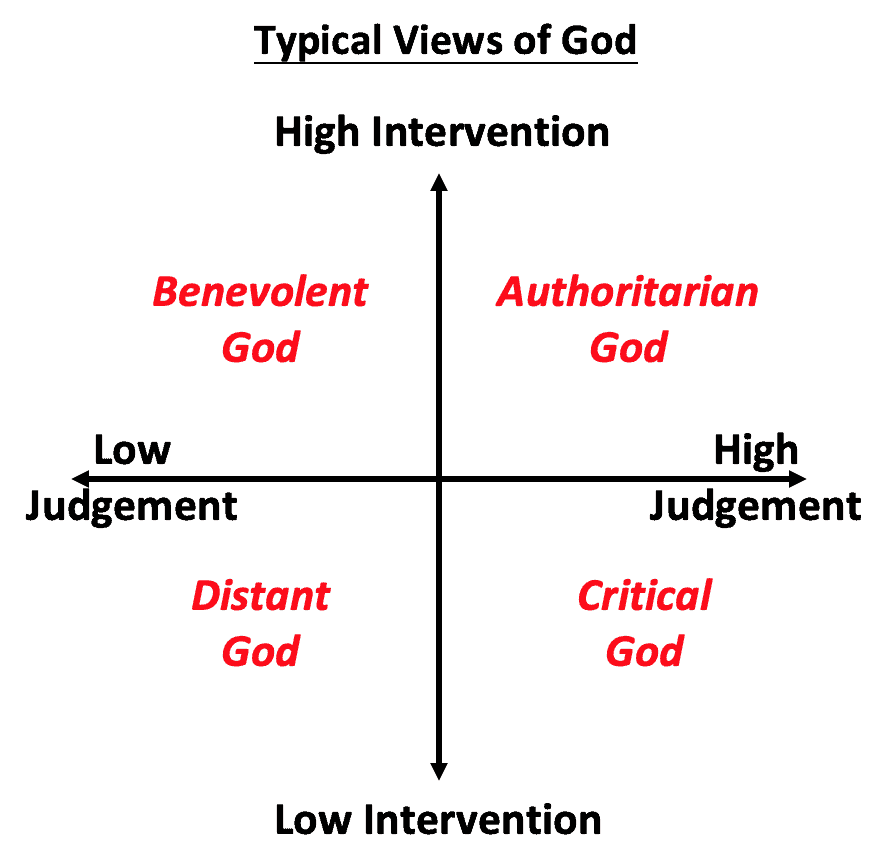
- Benevolent God: High Intervention, Low Judgment– this person sees God as highly involved working to the best of every single person’s life and outcomes. And so here is where we have a lot of people and we see anger because God seems to not intervene and not provide protection from the tragedy or not healing the disease or denying something they expected to receive. If you expect that God is kind, merciful, compassionate and protective, then you will be angry with God when your experience doesn’t line up with expectation.
So what about you? Where do you line up on the matrix? Have you been angry at God lately? What are the expectations you have with God that aren’t being met yet?
Tune in next week when we talk about 3 types of evil in the world and how everything gets messed up because of evil which ruins our expectations of a good and benevolent God.
